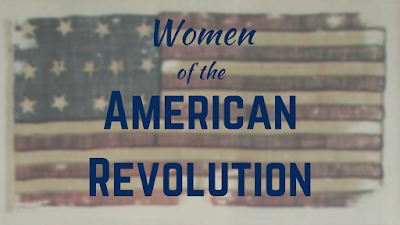On 25 October 1774, a group of fifty-one ladies of Edenton, North Carolina, met to add their support to the patriotic movement taking place in the American colonies. The gathering was held at the home of Elizabeth King and included women from well-known families eager to do their part. Their first action was to serve an American herbal concoction rather than tea imported from Great Britain.
 |
| Penelope Barker, Edenton Historical Commission |
Penelope Barker called the meeting to order and encouraged the women to share the patriotism of their menfolk and help them bear the burden in any way they could. Women would, in the years to come, endure much through the years of the Revolutionary War. Some would farm and perform physical labor of which they had not believed themselves capable. Others would run businesses while husbands and fathers joined the fighting. All women had to rearrange their lives around the fact that they lived and raised families in a country at war with dangers and threats sometimes just outside their door.
On this autumn day in 1774, however, the war had not yet started and many believed that the colonists were simply demanding their rights as British citizens who should not be treated as second-class simply because they resided in the American colonies. In addition to drinking tea made from raspberry leaves and other clever ingredients, the ladies agreed to boycott all imported British goods. They were bold in their intentions, proclaiming them in print and encouraging women of other areas to join them, even including their names.
 |
| 3 November 1774 Virginia Gazette |
Some men ridiculed the women's efforts and the women themselves. The political cartoon 'A Society of Ladies' is meant to portray the Edenton women as immoral and unattractive for their stance. Men might think this way because they supported King George III or because they didn't think women should be proclaiming any political opinions at all. British artist, Philip Dawe, shows the women neglecting their children and carousing with men of questionable character. Of course, in his cartoon, the women are also all hopelessly ugly.
Others applauded the women for their patriotic efforts, though the women's "tea party" hasn't shared the fame of the men's tea party in Boston. Throughout the war, women would be less recognized for their efforts, regardless of what was accomplished or suffered. However, one can't help but wonder how successful the men would have been in their fighting and politicking without the support of women who kept home fires burning, maintained farms that fed troops, and sewed the uniforms that clothed them.
Boycotting British imports was a huge commitment for women who had to find a way to replace those items in a country that did not produce all of the items they were used to ordering from abroad. Homespun became a patriotic fashion to replace finer fabrics that were not produced in the Americas and women found ways of making many things that they had previously purchased in addition to other wartime obligations.
Many women followed the Edenton ladies' example. Abigail Adams ran her family's farms during John's long absences, Esther Reed led the collection of $300,000 for women to provide soldiers with shirts during the war, and Martha Washington wore homespun as George's first lady.
~~~~~~~~~~~~~~~~~~~~~~~~~
Read more in Women of the American Revolution, coming soon from Pen & Sword.



No comments:
Post a Comment